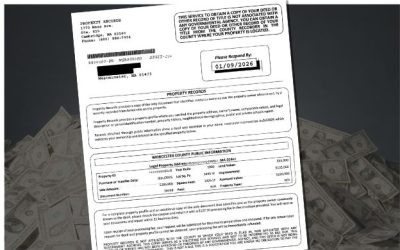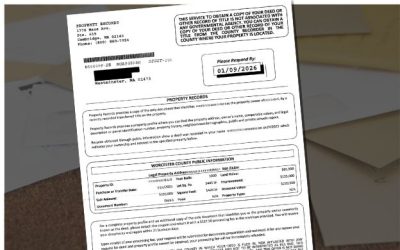
Jun 19, 2025 | Around The Home, Around The Hoome, Artificial intelligence, Buying Real Estate, Chapter 7 Bankruptcy, Consumer Tips, Credit Scoring, Fair Housing, Federal Reserve, FHFA, Financial Crisis, Financial Fraud, Financial Reports, Foreclosure, Happy Thanksgiving, Holidays, Home Building Tips, Home Buyer Tips, Home Buying Tips, Home Care, Home Care Tips, Home Closings, Home Decorating, Home Financing Tips, Home Maintenance, Home Mortgage, Home Mortgage Tips, Home Seller Tips, Home Selling Tips, Home Tips, Home Values, Homebuyer Tips, Homeowner Tips, Housing Analysis, Housing Market, Interesting Stuff, Investment Properties, Legislation, Market Outlook, Mortagage Tips, Mortgage, Mortgage Guidelines, Mortgage Lenders, Mortgage Rates, Mortgage Tips, mortgage-rates-whats-ahead-september-17-2012, News, Organization Tips, Personal Finance, Probate Law, Rankings, Real Estate, Real Estate Agent Information, Real Estate Definitions, Real Estate Tips, Real Estate Trends, Realtors, Selling Real Estate, Selling Your Home, Short Sales, Statistics, Success, Taxes, The Economy, Title Insurance
Whether you’re buying with cash, investing from abroad, transferring property to a family member, or just trying to close without a headache, you’ll want to know what can trigger federal scrutiny — and how to stay off the radar.
From flagged wire transfers and shell companies to gift-of-equity sales and land near military zones, this isn’t your average title-and-keys situation.
It’s real estate with a side of national security, tax enforcement, and financial crime prevention.
Is Big Brother Watching Your Home Sale?
What Buyers and Sellers Should Know About Federal Oversight
You’re Not Paranoid — They Might Actually Be Watching
What you didn’t know on how federal agencies keep tabs on select real estate transactions.
Your Closing Packet Could Be a Federal File
How Your Paper Trail Might Raise Red Flags — And What You Can Do About It
What the FBI, IRS, and Homeland Security
Could See in Your Closing Docs
We’re unpacking what agencies might spot inside your deal’s fine print.
Caught in the Crosshairs? What Triggers Federal Interest in Your Home Sale
The Top Red Flags That Could Invite a Closer Look from Washington
Cash, LLCs, or Land Near a Base? You Might Just Be a Target
The warning signs that put your deal on the government’s radar — and how to stay clear.
Follow the Money: How the IRS Tracks Financial Crimes Through Real Estate
From Unreported Income to Shell Game Schemes
— What IRS-CI Is Looking For
Your Closing Could Be an Audit Trigger — Here’s How the IRS Sees It
Explore the patterns, documents, and loopholes that turn ordinary deals into criminal cases.
Providing title, escrow, closing and settlement services to clients throughout Massachusetts and New Hampshire
“As a realtor, the Rocheford team went above and beyond to make sure my client was not only protected from a legal standpoint but also operated in a timely manner to execute the sale of my client’s dream home.
Thank you for the great experience for myself and my client! Looking forward to our next deal together!”
Realtor®
“I don’t usually use attorneys that often. But if an attorney is needed, I couldn’t recommend this law office enough. I always pride myself on responding quickly to emails and calls, but I was in awe of how fast paralegal Robert Heckman would respond to us. We sold our house a couple months ago and then did a two-part land swap with neighbors and my folks, and both transactions were seamless, including coming in to sign paperwork.
In short, if you need a law office that is responsive and attentive to detail, definitely consider them!”
Leominster, MA
“Excellent, conscientious and professional.
The communication throughout our Real Estate transaction was better than expected. We thought the fee to be very reasonable considering the work accomplished on our behalf. The law office handled the entire closing without us having to be in attendance….as we requested. I have had experience with very competent lawyers and law firms as the result of my previous profession. I would place this law office right up there among the best in their real estate field of expertise and surprisingly at very reasonable and affordable rates/fees.”
Buzzards Bay, MA

Sep 20, 2024 | Probate Law, Title Insurance
A common question that comes up in underwriting title insurance is how do we take title from the estate of a deceased person? There are typically three main ways that we can accept a title from an estate: (1) by License to Sell issued by the Probate Court; (2) by Power of Sale under an allowed Will; or (3) by a deed from the heirs at law or devisees in a Will. It is important to remember, however, that depending on which method is used to pass title, other claims or liens which impact title may need to be addressed in order for a policy to issue without exception.
Decree of Sale of Real Estate by Personal Representative (License to Sell)
There are a couple variations in the types of Licenses to Sell, but the end result for each is that the estate sells free and clear of any liens that would otherwise attach to the estate. Instead, those liens would attach to the proceeds of the sale. These liens include the automatic lien for administrative expenses, any creditor’s claims filed in the probate court (creditors have one year after death to assert claims), and any MassHealth liens filed with the probate court. Keep in mind, any liens that encumbered the real estate prior to death, such as a mortgage, still require a discharge. Also, a license does not eliminate the need to deal with Federal and Massachusetts Estate Taxes. Releases of estate taxes from both the IRS and DOR or an appropriate affidavit must be obtained and recorded at the Registry of Deeds.
The typical license we see is a general license to sell by the Personal Representative (“PR”) in the estate. A PR would file with the court a Petition for the Sale of Real Estate in order to receive permission to sell. This is a license under G.L. c. 202, section 19 and the court will only allow the petition if it is filed within one year of the allowance of the PR’s bond. The license must be used within one year of issuance. The terms of the license must be scrupulously followed. Most importantly, the sale price must be for the same amount or more than set forth in the license. My personal preference, and the best practice, is to have the license recorded along with the deed to make life easier on future title examiners but it is sufficient that the decree is only docketed in the probate case.
Taking a deed under Power of Sale in a Will is similar to a deed under a License to Sell in that any liens against the estate would attach to the proceeds of the sale. Again, releases of estate tax liens or estate tax affidavits must be recorded at the Registry of Deeds. In order to take a deed from a PR, the Will must contain a Power of Sale, the Will must be allowed by the court, and the PR must be appointed by the court. The Power of Sale must be closely reviewed to confirm that the power to sell includes real estate and that there are no other conditions tied to the PR’s power to sell. A PR is a fiduciary and therefore is bound by both statutory and common law fiduciary duties. For this reason, a deed from a PR that is for nominal consideration is problematic and may not be insurable. It is important to remember that a PR’s ability to sell under Power of Sale in a Will is not limited to time and not only cuts off claims of creditors but also all claims of legatees and devisees. The PR’s powers, however, are not indefinite. Specifically, if an Order of Complete Settlement is issued or the PR files a closing statement, the Personal Representative no longer has the ability to sell the real estate.
Deed from Devisees in a Will or Heirs at Law
Unlike deeds under Licenses to Sell and Power of Sale in a Will, any claims or liens filed in the probate court against the estate will have to be released or satisfied before we can insure a title given by devisees in a Will or heirs at law. One of the first and critical steps in determining whether title can be insured by such a deed, is establishing the identity of the devisees or heirs at law. Prior to the adoption of the MUPC, it wasn’t always easy to identify the devisees of a decedent if the will broadly identified individuals by group, rather than by name; however, with the adoption of the MUPC, the forms that are filed as part of a petition provide detailed information on devisees. In situations where a decedent died testate, and the devisees are clearly established in the probate filing, the devisees can convey the real estate; however, that conveyance is subject to divestment by the PR if the PR seeks to sell the property in order to completely administer the estate. Property conveyed by devisees is also subject to claims for the administration of the estate for a period of six years after the approval of the PR’s bond. To insure the title, we would generally require that the probate be closed with an order of complete settlement. This eliminates the potential for divesture by a PR and eliminates the potential for claims arising out of the administration of the estate.
If the decedent died intestate, unless the probate petition is filed as a formal proceeding, there is no determination of heirs and one cannot immediately rely on the filed forms to establish the heirs at law from a title perspective. For this reason, deeds from heirs in an informal proceeding may not be immediately insurable. If an informal probate has been filed for a decedent that died intestate and a PR has been appointed, it will generally be necessary for the PR to file a petition for an order of complete settlement that includes a specific request to determine the heirs. Once allowed, title conveyed from the heirs will be insurable.
As you can see, taking title from devisees or heirs at law can be far more complicated than taking title from a PR who has obtained a license or has been permitted to sell by the terms of the Will. Should you have questions on how to transfer title so that it is insurable when there is a probate involved, don’t hesitate to reach out to any member of our underwriting team. We will work with you to determine the best and easiest path to insurability.
The probate court provides links to many of the probate related forms, along with instructions for completion.
Providing title, escrow, closing and settlement services to clients throughout Massachusetts and New Hampshire
“I would highly recommend David as a closing attorney. I have known David and have been using his office for many years. David’s professionalism when dealing with me, my closing department and most especially my clients has been always exemplary.”
SENIOR LOAN OFFICER, SHAMROCK FINANCIAL SERVICES
“The Law Office of Attorney David R. Rocheford, Jr. is by far the most exceptional real estate law office that I have had the pleasure of working with. The professionalism is by far second to none.”
SENIOR LOAN OFFICER, SALEM FIVE MORTGAGE SERVICES
“Attorney David Rocheford has provided settlement and title services for me and Greenpark Mortgage several years. He has assisted all of my clients, including my family and friends with mortgage closings. Always providing excellent service. Reliable and trustworthy!”
















